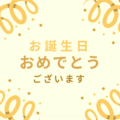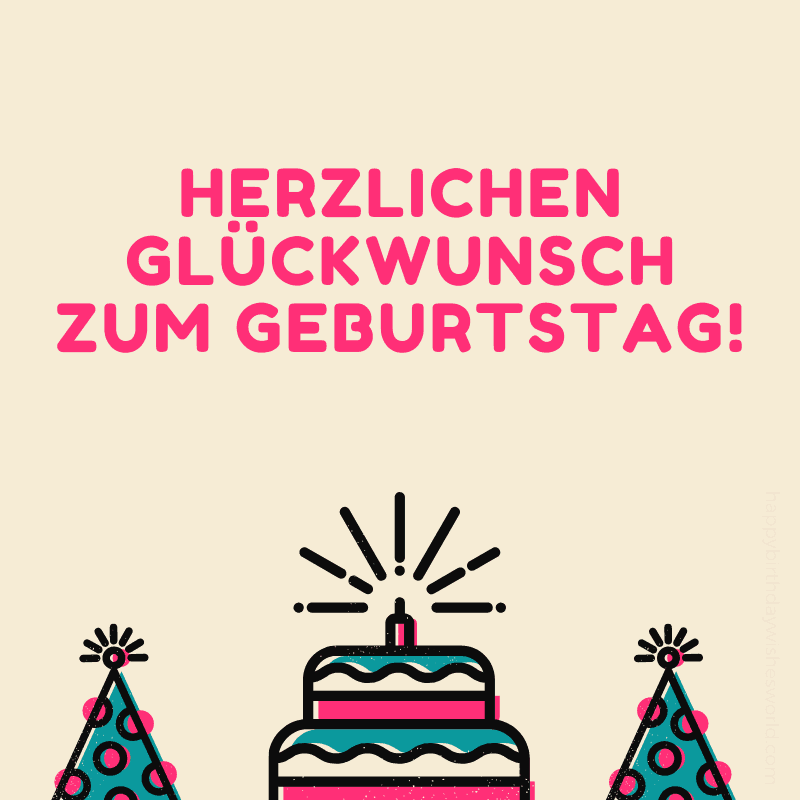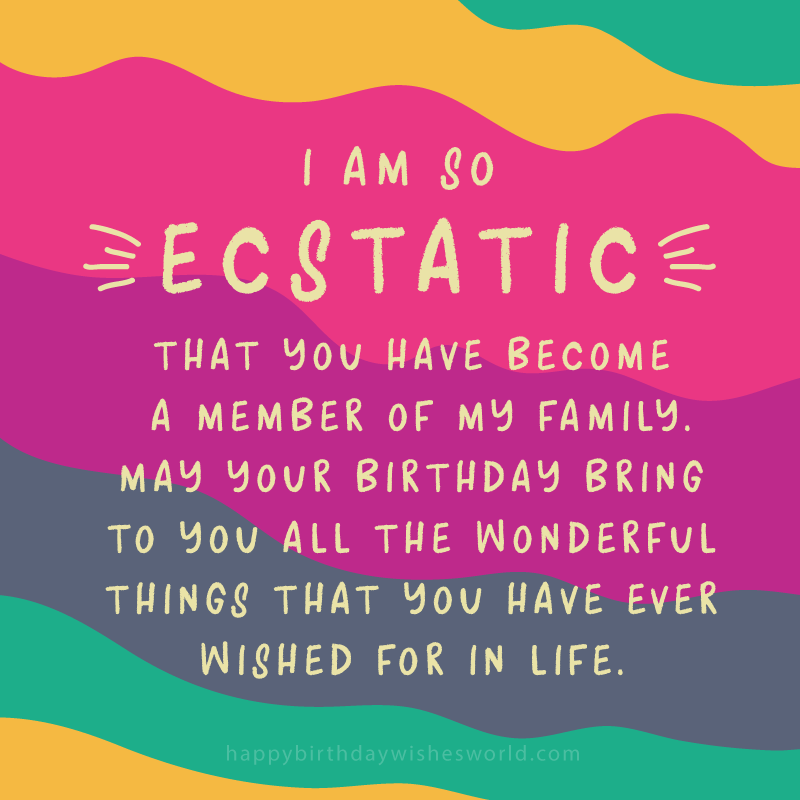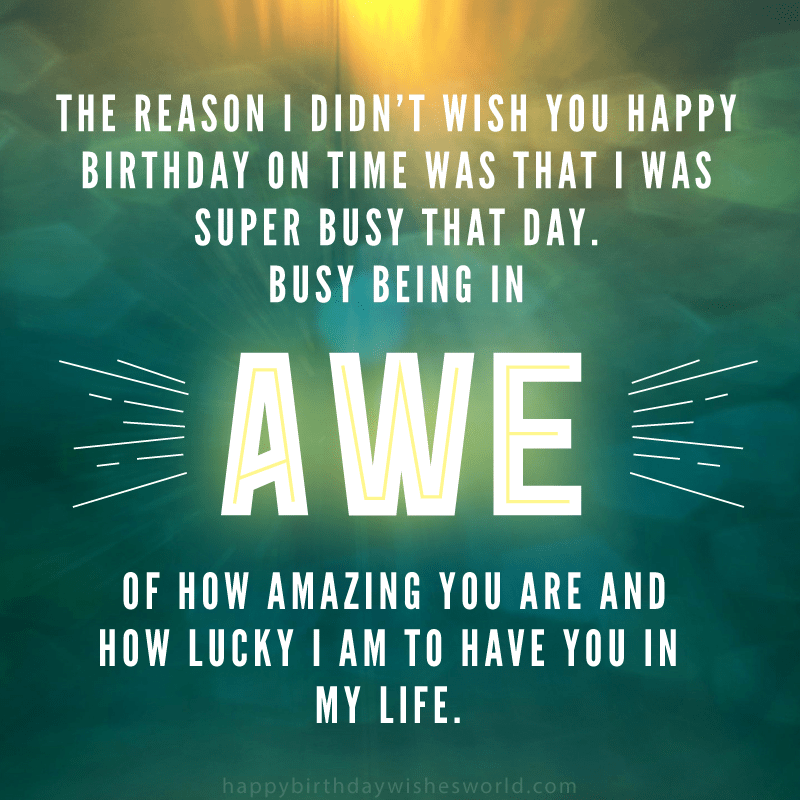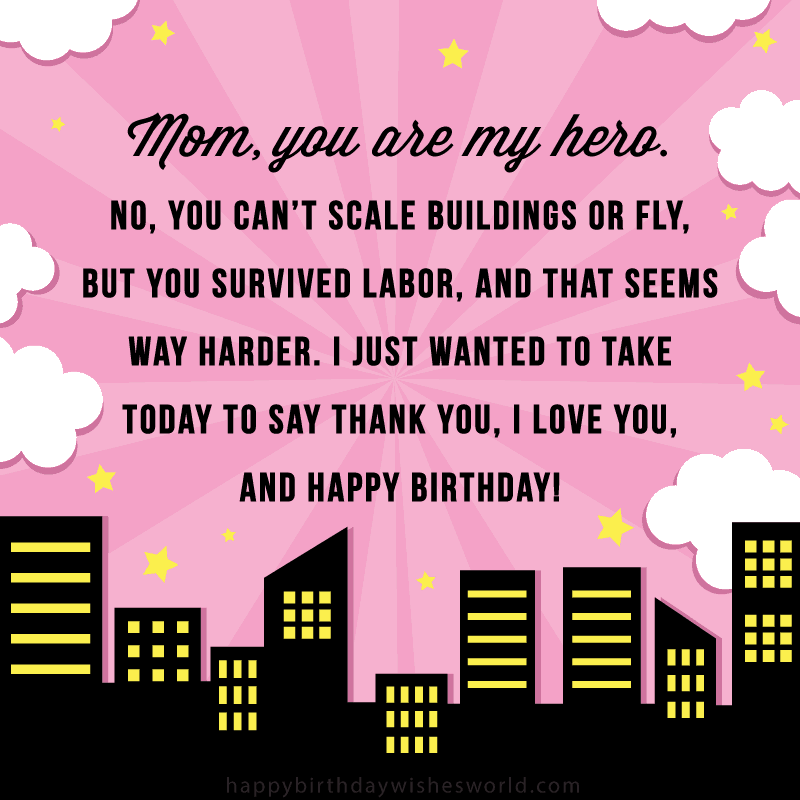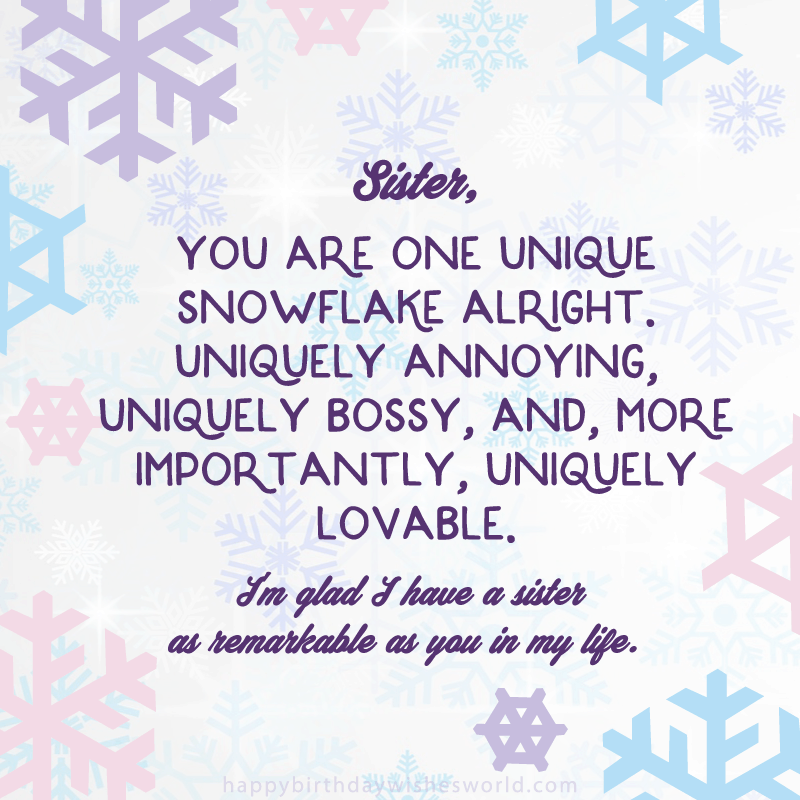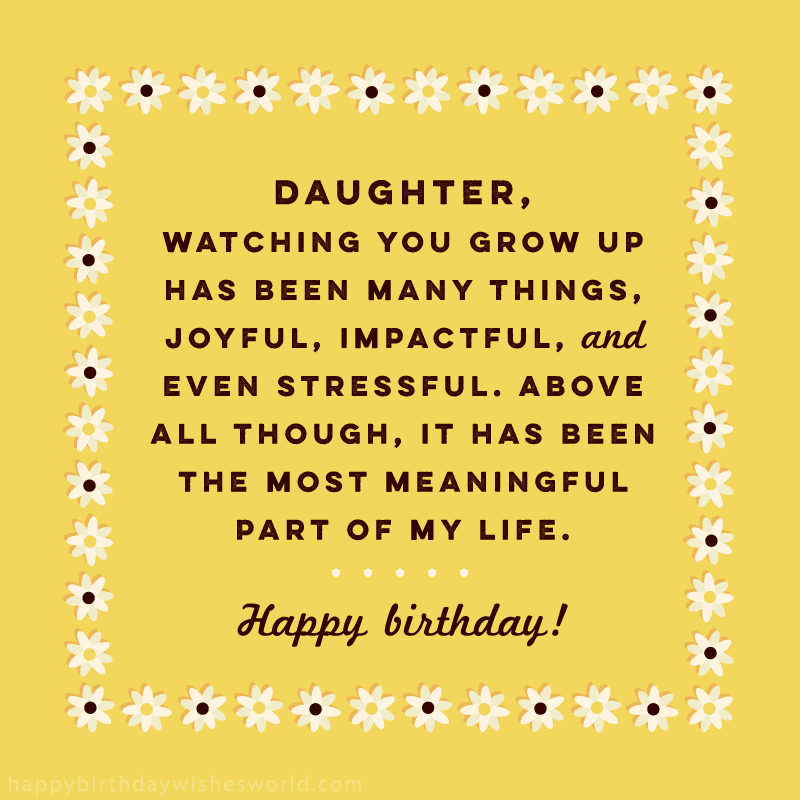Table of Contents Show
Before we learn how to say happy birthday in Korean, first we need to know a little bit about the Korean language.
In Korean, we have different titles and words to speak to people of different ages. More formal words and different endings on words are used depending on a person’s age so as to be more polite.
How to say happy birthday in Korean
Before you wish them a happy birthday, make sure you know how old they are in relation to you. If you aren’t sure of their age, and want to stay on the safe side, go for more polite.
1. For someone who is your age or younger:
생일 축하해
[sang-il chuk-ha-hae]
Happy birthday (casual)
2. For someone who is a little older than you:
생일 축하해요
[sang-il chuk-ha-hae-yo]
Happy birthday (polite)
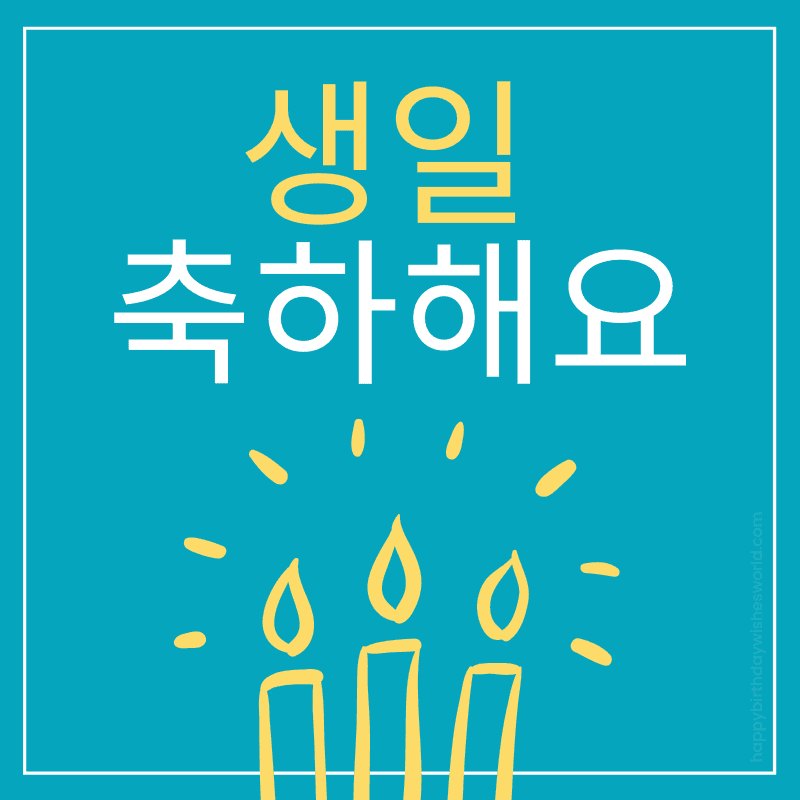
3. For someone who is much older than you or your parent:
생신 축하드려요
[sang-il chuk-ha-duh-ryo-yo]
Happy birthday (formal)
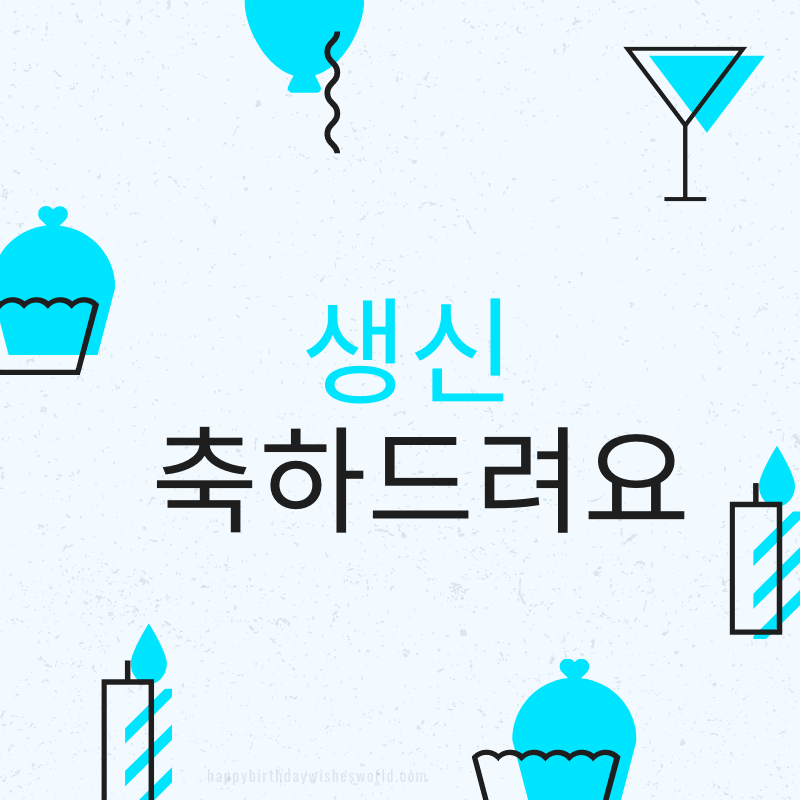
Happy birthday song
Our birthday song is just a translated version of the English birthday song. This is because traditionally we didn’t celebrate our birthdays on the day of our birth, more on that later.
Korean happy birthday song
생일 축하 합니다,
생일 축하 합니다,
사랑하는 (name) 의 생일 축하 합니다.
Pronunciation of Korean happy birthday song
[sang-il chuk-ha-hap-ni-da,
sang-il chuk-ha-hap-ni-da,
sa-rang-ha-noon (name) wi sang-il chuk-ha-hop-ni-da,]
English translation of Korean happy birthday song
Happy birthday to you,
Happy birthday to you,
Happy birthday dear (name)
Korean birthday traditions
Celebrating your birthday, literally the day of your birth is relatively new in Korea. So when I mention birthdays in this article I’ll be referring to celebrating the day of your birth. But Korea does have a traditional way of celebrating getting older. Let’s look at that now.
Unique age counting
In Korea we count our age in a different way. The day when a baby is born, they are automatically one year old. And every year on the 1st of January EVERYONE gets one year older. This is an old Chinese tradition that Korea uses.
So, when you celebrate the day of your birth in Korea you don’t get a year older. That happens on January 1st.
Food
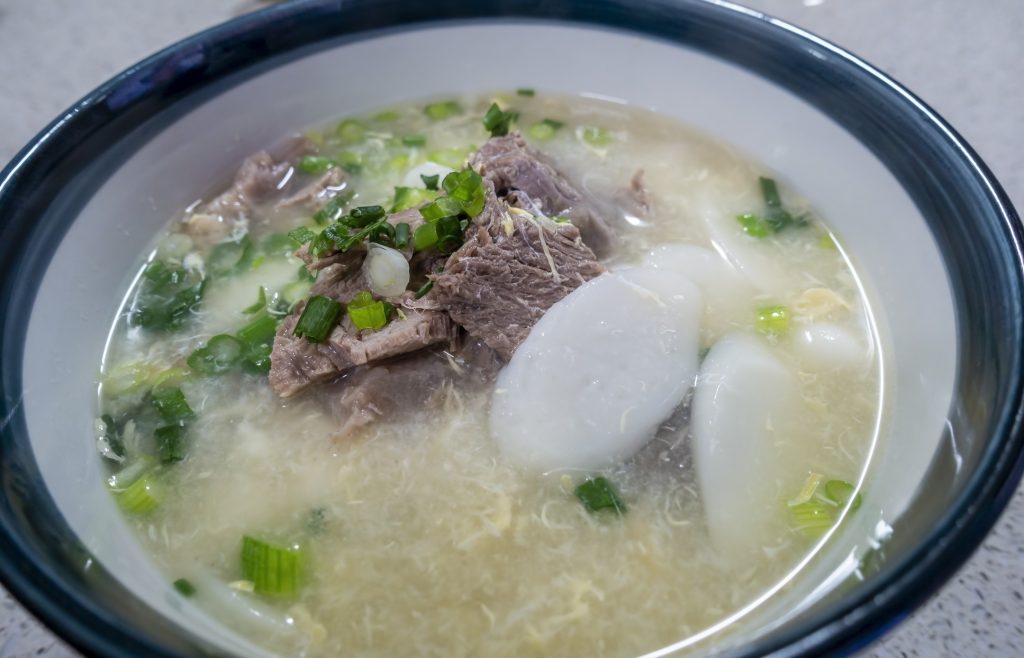
On the morning of the 1st of January we eat 떡국 [duk-kook] (rice cake soup) to celebrate getting one year older. 떡국 has sliced rice cake, egg, and meat boiled in a bone broth. And we say:
새해 복 많이 받으세요.
[sae-hae-bok ma-ni ba-duh-sae-yo]
(I wish for you to have a lot of luck in the new year.)
On our actual birthday, the day of our birth not January 1st, we are served 미역국 [mi-yuk-gook] (seaweed soup) traditionally cooked by our mom, a bowl of rice, and some side dishes. 미역국 has chopped up seaweed, a meat of choice (commonly beef), and a little bit of sesame oil.
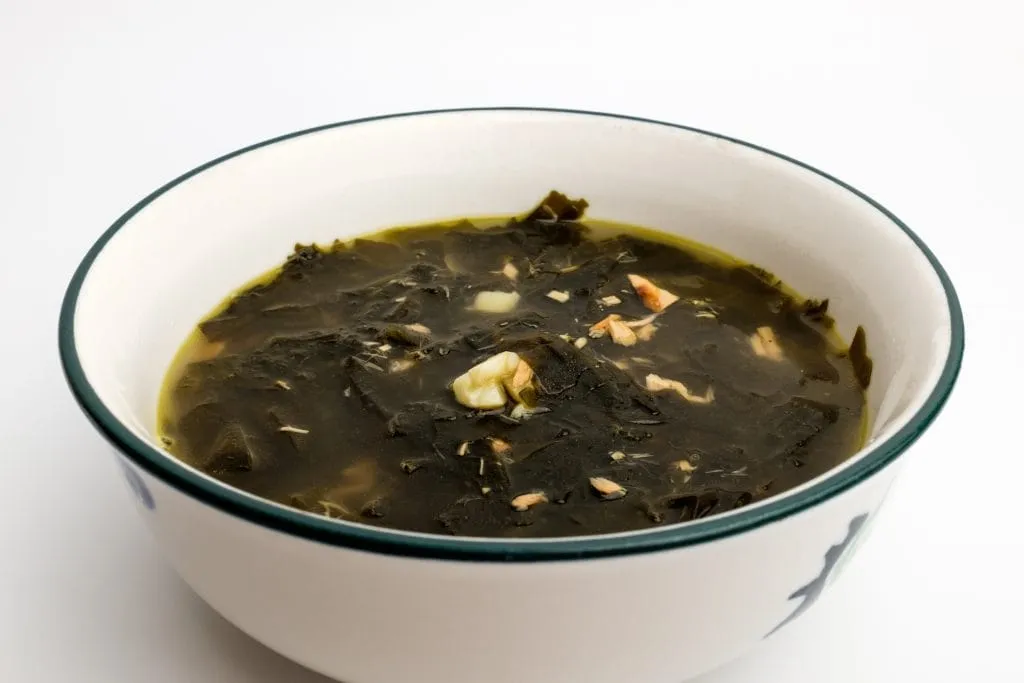
We also eat 미역국 after a mother delivers a baby as a recovery food every single meal for about 1 week to 1 month. 미역국 used to be considered as a royal food that only kings and queens could eat in the past.
We also eat western style cake on our birthday. Our cake is not as sweet and usually is decorated with fruit. We have regular western style cakes like yellow cake, chocolate cake, ice-cream cake, but also sweet potato and green tea flavor cakes as well. The sweet potato cakes are popular among older people.
Celebrations and presents
It is common to celebrate birthdays at home with family instead of having a big party. We do not have theme parties for kids. When kids are little (3 – 9 years old) parents send little goodie bags to school for their classmates. We will gather around a cake after dinner and blow out the candles after making a wish and just like western style birthdays, we don’t say what our wish is.
The candles have to be the right numbers for their age. Longer candles mean the first digit number of the age, and shorter candles mean the last digit number of the age. So, if the person is 38 years old, we will put 3 long candles and 8 short candles on the cake.
After we become an adult, when we can legally drink alcohol, we often have a party with friends in a bar. People bring presents and a cake, and the birthday person picks up the tab for everyone.
Also, birthday cards are not often given.
Special birthday years
There are 2 years that people celebrate their birthdays in a big way. When people turn 60, and when they turn 70.
To celebrate their longevity, their kids either prepare a big festive party or a trip overseas. In the past, their children would rent a place to have everyone over from their small town including their family and friends. For food they would have rice cakes, fruit, and a pig that they kill.
Nowadays for a party people rent a place for their family and friends with a big banner of celebrating their birthday, and hire a catering service and an MC. There will be a grandkids’ talent show and karaoke. For a trip to overseas, their kids pay for a package tour for them.
Reciprocal giving
We still have throwbacks to an earlier farming culture that are seen in how people buy presents for each other. In the past, we help each other during the harvest time or any time we need, and we call it 상부상조 [sang bu-sang-jo] which means we help each other with the intention of being paid back. Because of this we try to match the price of the present when we buy. For example, if person A bought me a present that costs about $30, on person A’s birthday I will buy something that costs about $30. As you get older, instead of buying a present it is acceptable to give cash as a present. Elders prefer to get cash.
Birthday hit
We have 생일빵 [sang-il paang] (Birthday hit) which means we are allowed to hit the birthday person for luck. This is more of a younger generation tradition. Also, younger generations often order a strong drink or make their own drink that is mixed with whatever they can find on the table like salt, ketchup, pepper, or other things that are not necessarily food. Socks can be dipped, or the drink can be poured in a shoe. This is not necessarily a tradition, but some younger Koreans do it for fun.
Drinking culture
Koreans love drinking and eating. So, this often plays a part in Korean birthday celebrations. We usually order big dishes to share for the table. A popular choice is beer and fried chicken but Korean BBQ is also very popular.
Types of drinks in Korea
Our traditional alcohol is called 소주 [Soju] a spirit made from different types of grains and 막걸리[makoli] rice wine.
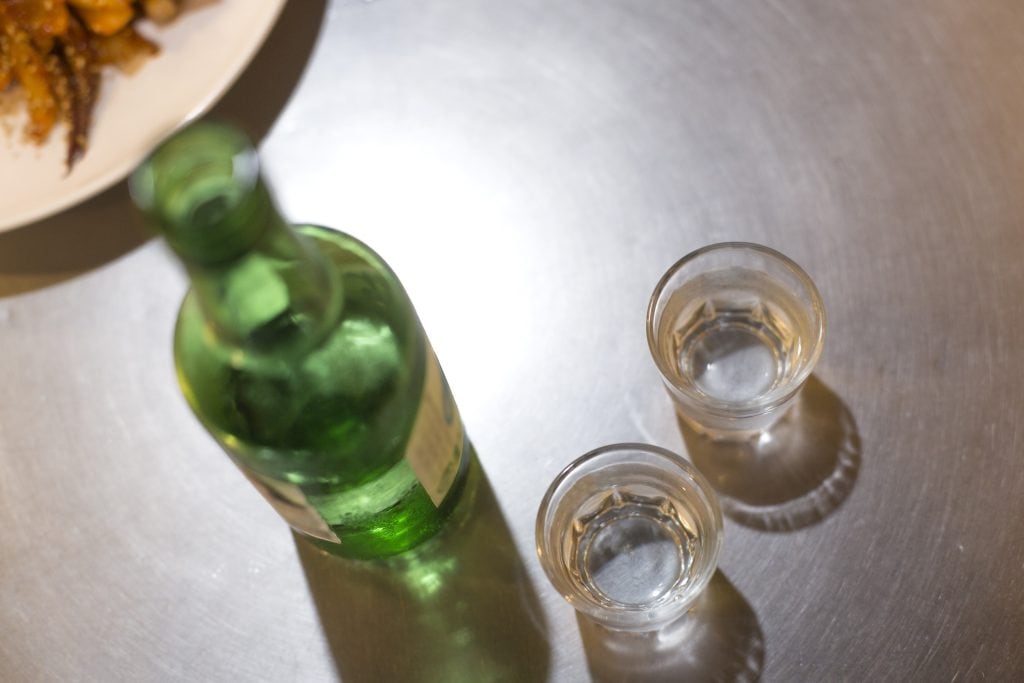
Soju is a clear liquid that almost looks like Vodka, and doesn’t have much flavor but has a little sweet taste to it. It varies in alcohol content (16.8% to 53%) and has a rubbing alcohol smell. These days Soju companies put out weaker Soju with fruity flavors. People drink Soju in a shot or mix it with beer as a 폭탄주 [pok-tan-ju] (bomb drink).
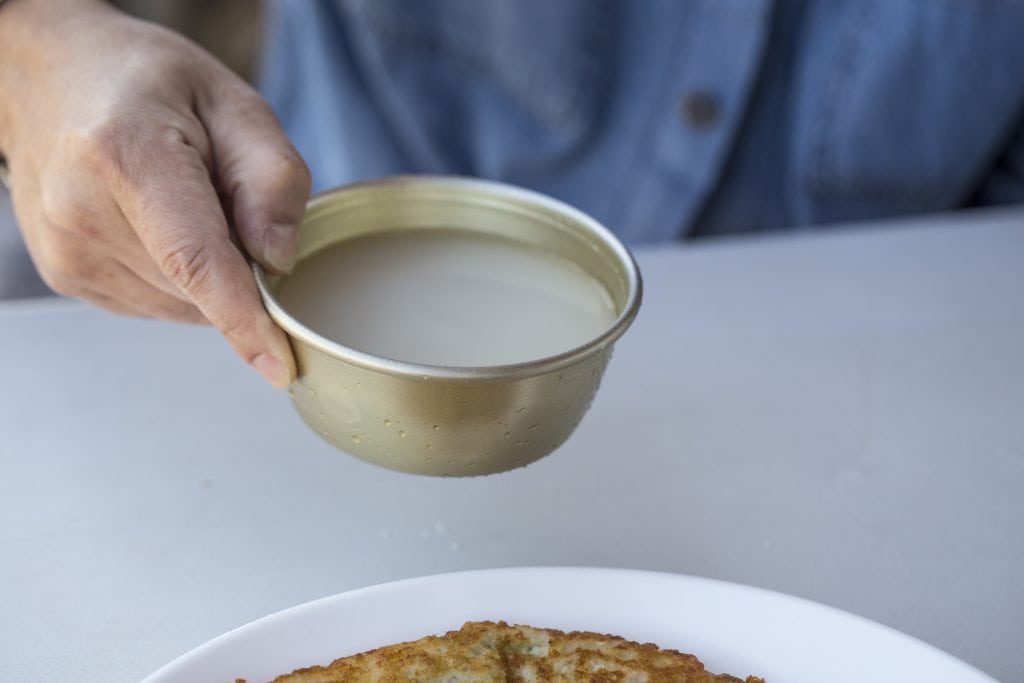
막걸리 is milky and has sweeter and smooth taste to it. Sticky rice wine is the most popular one. Traditionally it is served in a big bowl and you scoop it out with a ladle that is made of a gourd.
Drinking games
Younger generations play a lot of drinking games. If you are invited to a party be ready to drink a lot! Or win at every game to avoid drinking.
These are 3 very common drinking games we play but there are a lot more drinking games than the ones below.
1. 세종대왕 [Sae-jong dae-wang] (King Sejong)
King Sejong invented the Korean writing system. To honor that we only use pure Korean words. We normally adapt a lot of English words like 컴퓨터 [com-pu-toh] (computer), 티비 [tee-bee] (TV), 컵 [cup] (cup), 포크 [po-kuh] (fork) and more. We don’t even have Korean words to substitute those words, so it can be very tricky. Whoever speaks English words has to drink.
2. Three, six, nine Game
People sit around the table and start counting numbers up from 1. Every 3, 6, and 9 people have to clap instead of saying it out loud. It gets tricky when the number gets bigger especially 30, 60, and 90. Number 30 has a 3 so they have to clap once and for 33, 36, and 39 they have to clap twice. No one speaks out the number for 30 so you have to pay attention! Whoever makes a mistake has to drink.
3. 게임 오브대스 [gae-im o-buh dae-suh] (Game of Death)
Everyone sings 재미난다 [jae-mi nan-da] (fun), 신난다 [shin nan-da] (exciting), 더 게임 오브 대스 [duh gae-im o-buh dae-suh] (The game of Death) while hitting the table with chopsticks. As soon as the song ends everyone points their chopsticks to 2 different people. Start from the person who drank last and follow the direction of the chop sticks to see where it ends. Whoever the last person is at the end of the chopstick chain has to drink.
Other articles you might enjoy
Happy Birthday in German
200 Belated Birthday Wishes

